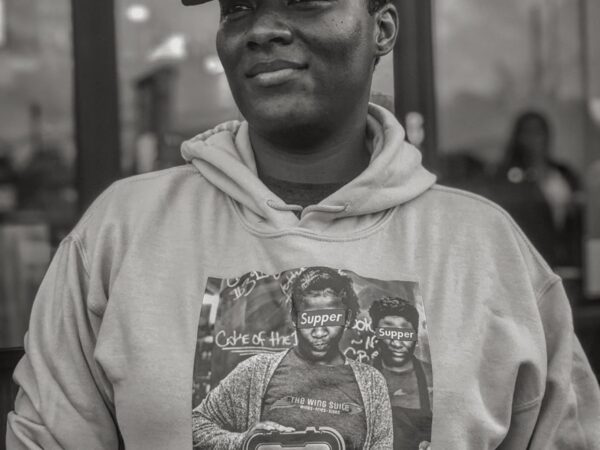Empowering Black Women Business Owners: Bridging the Gap to Financial Capital
The business landscape in the United States is undergoing a profound transformation, particularly with the escalating prominence of minority and women-owned businesses.

The Growing Landscape of African American Women-Owned Businesses
Black entrepreneurs own 15% of U.S. microbusinesses. With Black women accounting for over two-thirds of those businesses, this represents 68% of Black-owned microbusinesses. Black female entrepreneurs are the fastest-growing group of entrepreneurs in the United States, with their numbers more than doubling since August 2019. Black women make up less than 10% of the U.S. population, yet they have emerged as the fastest-growing group of entrepreneurs.Between 2017 and 2020, the number of Black women-owned businesses increased by nearly 20%, far exceeding the growth of women-owned businesses and Black-owned businesses overall, as reported by the Brookings Institution. However, the average revenue of Black women-owned businesses remains significantly lower than that of all women-owned businesses.While the number of businesses owned by Black women is on the rise, many face significant barriers in accessing essential financial resources, like loans and grants. These statistics highlight the pressing obstacles Black women face in securing capital.Despite their entrepreneurial spirit and increasing business ownership, Black women often struggle to access the financial capital necessary to launch and sustain their businesses. This issue is made worse by systemic barriers and a challenging economic environment that disproportionately affects their businesses.
To help address these challenges, here are some practical tips for Black women business owners seeking to access capital:
- Research Potential Lenders: Identify lenders that align with your business needs and values. Consider factors such as interest rates, loan terms, and requirements.
- Prepare Financial Documents: Have your financial statements, business plan, and credit reports ready to present a strong case to potential lenders.
- Explore Grant Programs: Look for grant opportunities specifically aimed at supporting Black women entrepreneurs or your industry to supplement your funding.
- Seek Non-Monetary Support: Investigate resources such as free business advising, educational articles, and courses available.
Challenges in Securing Financial Capital
Securing financial capital is one of the biggest challenges for Black women entrepreneurs. Research shows that the obstacles these business owners face can be grouped into several main areas:
Access to Funding
Despite their strong entrepreneurial spirit, Black women often run into barriers when seeking funds for their businesses. Studies reveal that minority-owned businesses frequently deal with higher rates of loan denials, tougher lending standards, and less favorable terms compared to white-owned businesses, and particularly stricter conditions than those faced by white women. The view of minority-owned businesses as high-risk can lead lenders to hesitate, resulting in lost opportunities.
Systematic Bias
Bias within lending institutions complicates the funding situation even more. Many banks and financial organizations are swayed by stereotypes, seeing businesses owned by Black women as less credible. This bias often causes longer processing times, more scrutiny on loan applications, and extra requirements that do not apply to others.
Limited Credit History
Many Black women entrepreneurs start their businesses with little or no credit history, which makes it hard to access traditional funding sources. Gaps in personal wealth make this worse, as many do not have the savings or collateral needed to secure loans.
Network Barriers
Having access to strong professional networks can improve chances for funding. However, Black women often face challenges in networking, such as fewer connections to venture capitalists, angel investors, or mentorship from successful peers, which can hinder their growth. This lack of mentorship leaves them without guidance or support in navigating the lending landscape.
Socioeconomic Factors
Black women also face many socio economic challenges, like higher unemployment rates and lower incomes. These issues limit their ability to invest in their businesses, obtain loans, or manage operational costs.
Historical Disparities
Long-standing inequalities, especially in lending practices, play an important role as well. For years, African Americans have faced discrimination in getting loans and investments, contributing to ongoing wealth gaps and disparities in funding opportunities for businesses.
Why are Blank women starting new businesses?
Despite these challenges, many Black women are driven to entrepreneurship for a multitude of reasons, illustrating an inspiring fusion of passion and resilience:
- Desire for Independence and Flexibility: Many entrepreneurs pursue business ownership to escape traditional employment constraints, which allows for greater flexibility in their work lives. This sense of independence can empower women to create their own paths without being confined by workplace limitations.
- Social Change and Community Development: Many women entrepreneurs are motivated to positively affect their communities. By starting their businesses, they seek to provide jobs, offer essential services, and inspire the next generation of female and minority entrepreneurs.
- Personal Growth and Empowerment: The journey of entrepreneurship is often about self-discovery and personal growth. Many Black women find empowerment through ownership. Enabling them to develop new skills, enhance their identity, and establish their reputations in their respective fields.
- Building Legacy: For many women, entrepreneurship is rooted in a desire to create a lasting legacy for their families. Starting a business can provide not only financial stability, but also generational wealth. Passing down a legacy through families offers an opportunity to break long standing cycles of poverty.
Introduction to Your Path Forward
As you embark on your journey, it’s crucial to recognize that understanding your challenges are only the first step. Your path to success thrives on actionable insights that can empower you to navigate the complexities of business ownership with confidence. That’s why we’ve established clear steps designed specifically for small business owners like you—steps that will not only resonate with your experiences but also equip you with practical strategies to overcome obstacles and succeed in your business ventures.Let’s explore four key steps that can guide you on your business funding journey:
Step 1: Understand the Funding Landscape
Gain a comprehensive understanding of various funding sources available to you, including grants, loans, and alternative financing options.
As a Black woman entrepreneur, gaining a comprehensive understanding of the various funding sources available to you is vital for your business’s success. Navigating the world of finance can be daunting, but knowing your options empowers you to make informed decisions.
- Grants as a Funding Source: Grants are a fantastic source of funding because they do not need to be repaid. Various organizations, including government entities, nonprofits, and private foundations, specifically offer grants to support Black women entrepreneurs. Research grant opportunities that align with your business goals, industry, and community impact. Many grant programs require specific applications, so be prepared to present your business plan clearly and compellingly.
- Loans as a Funding Source: Understanding different types of loans is crucial. Traditional bank loans typically offer lower interest rates but may require extensive documentation and a robust credit history. If you aren’t ready for a bank loan, explore alternative lenders, including community development financial institutions (CDFIs) and microlenders, that cater to minority business owners. These lenders often have more flexible terms and can provide personalized support to help you through the application process.
- Alternative Financing Options: In addition to grants and loans, consider alternative financing methods that may suit your needs. Crowdfunding platforms allow you to raise small amounts of money from a large number of people, often in exchange for rewards or products. Peer-to-peer lending is another option, connecting borrowers directly with investors who are willing to fund their projects. Additionally, exploring options like invoice financing or business credit cards can provide immediate cash flow support when needed, if you have solid credit and a good relationship with your vendors or payment processor.
- Financial Support Programs: Many organizations offer support programs specifically designed for Black women entrepreneurs, so take advantage of these resources. Look for initiatives that provide financial literacy training, mentorship, and access to potential investors. Engaging with these programs not only enhances your financial knowledge but also helps build a supportive network
Step 2: Enhance Financial Literacy
Enhancing your financial literacy is crucial for the long-term success and sustainability of your business. By gaining a solid foundation in financial management, budgeting, and credit building, you’ll be better equipped to make informed decisions and grow your business
Step 3: Networking and Community Building
Engaging with networks that support Black women entrepreneurs is essential for both personal and professional growth. Building a strongcommunity can provide you with the resources, encouragement, and connections needed to thrive in your entrepreneurial journey.
- Local Business Groups like National Black Chamber of Commerce (NBCC) and Association of Women’s Business Centers offer workshops and networking events to connect with wallow entrepreneurs.
Step 4: Promote Mental Wellness
Acknowledge the psychological challenges that come with entrepreneurship and explore tools for resilience, stress management, and self-care.
- Mindfulness and Meditation: Incorporating mindfulness techniques can help manage stress and maintain focus. Tools like Headspace offer guided meditation sessions designed specifically for relaxation and mental clarity. Similarly, Calm provides a variety of stress relief techniques, including sleep stories and calming music to help users unwind.
- Seeking professional help can be vital for mental wellness. Therapy for Black Girls is an excellent online directory that connects Black women with culturally competent therapists and mental health resources. Additionally, the Black Women’s Health Imperative focuses on promoting health and wellness among Black women, offering mental health resources tailored to their unique experiences.
- Effective stress management is crucial for maintaining mental wellness. Project management tools such as Trello and Asana can assist in organizing tasks and improving time management, reducing feelings of being overwhelmed.
- Incorporating self-care into daily life is essential for emotional health. Resources like Fitness Blender provide free workout plans that promote physical wellness, which is closely tied to mental health. Furthermore, Nutrition.gov offers tips on healthy eating and meal preparation, emphasizing the importance of nutrition in self-care.
Remember, your journey is not just about business; it’s about breaking barriers and redefining success. Each step you take empowers not only yourself but also those who will follow in your footsteps. Embrace your unique strengths, seek out the support you need, and stand firm in your vision. You have the power to create change, inspire others, and leave a lasting legacy.
Promoting Resilience: Accion Opportunity Fund as a Resource
Accion Opportunity Fund is committed to addressing the unique challenges faced by Black women entrepreneurs- and all minority and women business owners- and is dedicated to fostering economic empowerment through access to financial resources and educational support. The organization’s mission is particularly critical, given the barriers this demographic faces in securing funding.Key offerings provided by Accion Opportunity Fund include:
Access to Capital
Accion Opportunity Fund connects entrepreneurs with various funding opportunities, including grants, loans, and educational resources tailored to their specific needs. This initiative directly addresses the financial barriers identified in earlier sections.
Business Development Programs
The organization offers numerous educational programs and workshops that equip entrepreneurs with essential business management knowledge, marketing strategies, operational skills, and financial literacy. These programs help cultivate the necessary skills for sustainable business growth.
Networking Opportunities
Through our in person events and educational programs that connect entrepreneurs with established industry leaders, and potential investors, Accion Opportunity Fund fosters a supportive network designed to open doors for African American women entrepreneurs.
Advocacy and Policy Change
We actively advocate for policies and programs that promote equitable access to funding for minority-owned businesses. This advocacy work is crucial in combating systemic barriers and disparities in the lending landscape.
Business Coaching Programs
We connect aspiring entrepreneurs with business coaches who can provide guidance, encouragement, and support throughout the entrepreneurial journey. This advisor network helps build confidence and enhances the probability of success for new business ventures.
Success Stories and Community Support
We are proud to share the success stories of Black women who have overcome challenges to achieve their business goals. By sharing these stories, we hope to inspire other women to follow their dreams.
Case Study: Success Through Accion Opportunity Fund
The story of Natasha Case, Co-founder and CEO of Coolhaus and former AOF client and board member, exemplifies the impact of Accion Opportunity Fund. Transitioning from a trained architect to “the ice cream lady,” Natasha combined her passions for food and design after a professor compared her model to a layer cake. This sparked the idea of “Farchitecture” and led to the launch of Coolhaus, reflecting their identities as millennials, women, and LGBTQ+ individuals.Starting during the Great Recession, Natasha faced funding challenges due to gender and age biases from traditional banks. Discovering Accion Opportunity Fund (AOF) provided her with critical financial support, enabling her to finance multiple trucks and grow her business to $15 million in revenue.AOF not only offered funding but also a supportive community. Natasha shared her journey at a major conference in 2012, leading to networking opportunities. By 2014, she joined AOF’s board to mentor women entrepreneurs and help them overcome common psychological barriers.Today, Coolhaus boasts products in 6,000 grocery stores and a national fleet of ice cream trucks. Natasha’s journey underscores the potential of female entrepreneurs to realize their dreams, a mission that aligns with AOF’s vision. For more on her entrepreneurial path, see the full article here.
Celebrating Successes and Breaking Down Stereotypes
Black women-owned businesses are breaking down stereotypes and shattering glass ceilings in the business world. Despite facing unique challenges, such as limited access to capital and resources, Black women entrepreneurs are proving themselves to be resilient and determined. According to the Wells Fargo Impact of Women-Owned Businesses report, Black women-owned businesses grew 32.7% between 2019 and 2023, outpacing the growth of women-owned businesses (7.1%) and Black-owned businesses (4.1%) during the same period.The success of Black women entrepreneurs is not limited to their business growth. They are also making a positive impact on their communities, creating jobs, and promoting financial literacy among young people.
The Future of Black Women Owned Businesses
The future of Black women-owned businesses looks bright. With the support of organizations like the Nasdaq Entrepreneurial Center (NEC) and Wells Fargo, Black women entrepreneurs are gaining access to the resources and networks they need to succeed. The NEC’s Milestone Circles program, for example, has connected over 4,000 women business owners to powerful peer networks and has helped them improve their businesses.As the number of Black women-owned businesses continues to grow, it is likely that we will see more Black women entrepreneurs breaking into new industries and creating innovative products and services. For example, Pinky Cole, CEO and founder of Slutty Vegan, has disrupted the food industry with her plant-based comfort food restaurant, which has seven brick-and-mortar locations in Atlanta, Birmingham, Alabama, and Brooklyn, New York.
Empowering Black Women Through Education and Resources
Empowering Black women through education and resources is critical to the success of Black women-owned businesses. Organizations like the NEC and Wells Fargo are providing Black women entrepreneurs with access to training, mentorship, and capital. For example, Saundra Gilliard, founder of Femininely Free!, started her business in early 2020 and turned to Milestone Circles for help. Through the program, she was able to improve her business alongside a “circle” of fellow entrepreneurs.In addition to these programs, there are also many online resources available to Black women entrepreneurs, such as the Wells Fargo Impact of Women-Owned Businesses report, which provides insights and data on the state of women-owned businesses. By providing Black women entrepreneurs with access to education and resources, we can help them overcome the unique challenges they face and achieve success in the business world.
Empowering Black Women Entrepreneurs through Access to Capital, Business Development, and Networking Opportunities
The journey of Black women entrepreneurs is characterized by resilience, determination, and a commitment to overcoming barriers. Their challenges in securing financial capital highlight systemic inequalities in the banking and entrepreneurial ecosystems. Nevertheless, the empowerment derived from entrepreneurship drives many to seek change—not just for themselves but for their communities.To drive meaningful change, it is essential to advocate for increased access to capital, education, and networking opportunities for Black women in business. This approach enriches not only their enterprises but also the economic landscape as a whole, creating pathways for future generations and ensuring that diverse voices are heard and valued in the entrepreneurial narrative.As we reflect on the impactful contributions of Black women entrepreneurs, it is essential to recognize the role that organizations supporting business growth play in fostering a more equitable future for all business owners. By supporting these initiatives, we can help create a landscape where diverse entrepreneurs thrive, ultimately contributing to a more inclusive and vibrant economy. Together, we can empower business owners with the resources and community support they need to succeed.









